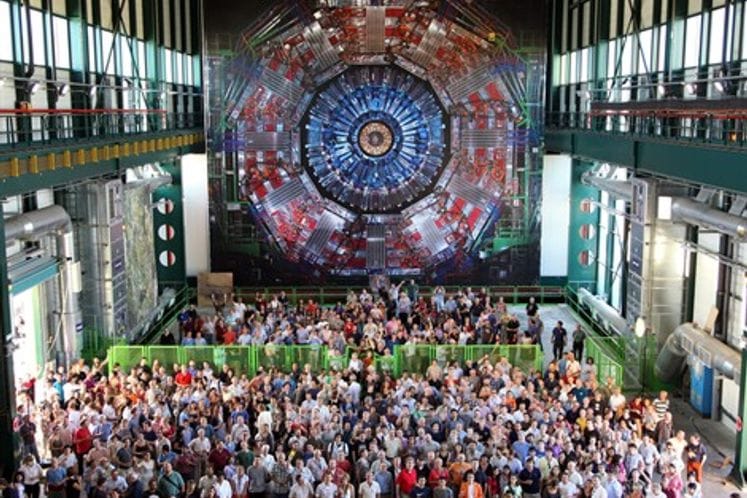- Government of Montenegro
Great step for science: Montenegrin researchers wi...
Great step for science: Montenegrin researchers will have their place in CERN

Podgorica, Montenegro (24 June 2017) -- Montenegro has become a full member of the CMS experiment, one of the largest LHC experiments within the CERN, meaning that researchers from Montenegrin scientific institutions will be for the first time part of this eminent scientific community, and Montenegro is thus enrolled in the scientific map of the world.
As early as next week, five young researchers from Montenegro will start working on their projects at the CERN.
This status will open up extraordinary opportunities for young scientists. They will be able to conduct research in their home institutions, due to the availability of CERN data, and will also be able to constantly collaborate with the best experts from around the world through video conferences and occasional stays in Geneva.
Participation in such international collaborations will affect more young people staying in our country, which is one of the key priorities of the Ministry of Science. Furthermore, working with the international scientific community, complex technologies and a large volume of scientific data will affect the competitiveness of our scientists. The knowledge they acquire in this way can be applied in a number of areas.
Large Hadron Collider - LHC with supporting infrastructure, detectors and computer systems is not only the largest scientific experiment in the world, but the most complex machine of today. Membership in the CMS experiment will allow other professions to be engaged in researches.
Access to international collaborations and membership in renowned scientific institutions has a political significance, especially in the context of European integration.
Compact Muon Solenoid - CMS is one of the most complex scientific projects in which the biggest energy collisions are produced so far. Interestingly, the CMS detector complex is two times heavier than the Eiffel Tower in Paris.
CMS experiment was in the focus of the world public in 2012, due to the discovery of Higgs boson. Since 2010, over 500 scientific articles have been made on the basis of the obtained data on the experiment. The CMS experiment involves about 4,000 scientists, engineers and students from 200 research institutions from around the world.
European Organisation for Nuclear Research - CERN was founded in 1954, and 22 countries have the status of members. About 13,000 people from over 110 countries around the world are engaged in CERN projects, of which about 3,000 are doctoral candidates.
